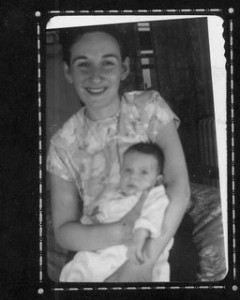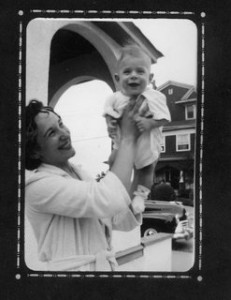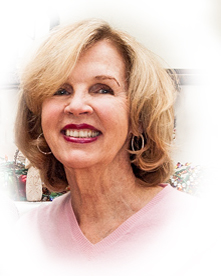Mothers Finding Meaning Again
A Support Group For Mothers Who Have Lost Children
Founded By Mary Jane Hurley Brant, M.S., CGP
Over eight years ago I shared a cup of tea with a grieving friend following the sudden loss of her adult son. I had an understanding of how she felt because I, too, had lost an adult daughter, Katie, to a brain tumor she battled for ten years.
While my friend and I sipped our tea I asked her what she thought about me starting a no-cost bereavement group for mothers who have lost children. As a practicing certified group psychotherapist for 37 years, I felt there was a need for this kind of specialty group and I was called to do it. My friend said to count her in if I began a group like that.
Within months the group was up, running and named “Mothers Finding Meaning Again.” The title defines its participants and its purpose because it was designed for grieving mothers hoping to find a new meaning for their lives. And although I know how deeply fathers also suffer when they lose a beloved child, I did not include them in this group because mixing genders would have altered the group dynamics.
 We have 22 women who regularly attend. Our ages range from the 40’s to early 80’s. Our religious orientations are varied: Catholic, Jewish, Quaker, Protestant, Armenian, non-believer and spiritual. We are black, white, and Asian. Some of us still work; some are retired. We are nurses, teachers, caregivers, professors, business professionals, comedians, receptionists, psychotherapists, clinical social workers, yoga instructors, volunteers, artists, craftswomen, vocalists, sales reps, stay-at-home mothers, grandmothers and writers. We are married, divorced, remarried, single and widowed. A couple members are cancer survivors and one mother is presently battling that dreadful disease. We have lost two members to cancer. Some of our members have other living children; some do not. We are tall and we are short. We are all gorgeous, compassionate and loving. We like wine.
We have 22 women who regularly attend. Our ages range from the 40’s to early 80’s. Our religious orientations are varied: Catholic, Jewish, Quaker, Protestant, Armenian, non-believer and spiritual. We are black, white, and Asian. Some of us still work; some are retired. We are nurses, teachers, caregivers, professors, business professionals, comedians, receptionists, psychotherapists, clinical social workers, yoga instructors, volunteers, artists, craftswomen, vocalists, sales reps, stay-at-home mothers, grandmothers and writers. We are married, divorced, remarried, single and widowed. A couple members are cancer survivors and one mother is presently battling that dreadful disease. We have lost two members to cancer. Some of our members have other living children; some do not. We are tall and we are short. We are all gorgeous, compassionate and loving. We like wine.
Many forms of deaths took our children: an accidental drowning, murder, a boating accident, a train accident, cancer, blood disease, viral encephalitis, mental illness, suicide, alcohol, drugs, accidental overdose, from misdiagnosed illnesses, and for never-to-understand reasons. Four mothers lost two children and of that group three lost twins. Two moms lost special needs children. One mom’s child died five years after being tragically paralyzed. The deaths of our children were sometimes anticipated, sometimes sudden. But no matter the age of the child, the cause or timing of our children’s death; we are all left with the same bottom line reality: our children are gone.
None of us feels we look the same since our child’s death. We stare at old pictures or in the mirror and remember how happy we felt and looked when our child was alive. Many of us feel the world we live in now is much closer to heaven than to earth. And yet, despite the magnitude of pain and sorrow we feel, every one of our members has made the decision to live the life she now has in front of her.
Some members struggle with depression and anxiety daily, some periodically. Upcoming holidays, Mother’s Day, our children’s birthdays and anniversaries are hard for every one of us. As a group we’ve grown emotionally close so we look out for one another during these times, checking in by phone or text, email or with a cup of coffee or a walk in between meetings. That differentiates us from a traditional psychotherapy group. Ordinarily, this kind of contact outside of a meeting can be frowned upon. In our group it is welcomed.
Our monthly meetings follow a regular agenda. We gather on the fourth Wednesday in a home spacious enough to accommodate our large group. We all contribute light fare for sharing; arrive promptly at 7:00 p.m. and socialize for the first 30 minutes. Embraces and cheek kisses fill our hosting mother’s kitchen with welcome. We all feel energized and happy to once again be together socializing and admiring a new hairdo, a pair of killer boots, or a symbolic tattoo. As other women and mothers do, we enjoy fashion, chatter and pleasantries. Where we are unlike other mothers is how we must manage a sorrow that no mother wants to imagine or accept.
As a psychotherapist I feel the socializing aspect of our group is as important to us bereaved mothers as is our emotional support because when someone is grieving there is a natural human tendency to pull back and stop seeing friends, to isolate. But avoiding friends is not a healthy choice – it increases the risk of an even greater depression or worse: an immobilizing despair. The model for our group is to socialize along with sharing our feelings about our deceased child. Maybe our need is indeed the mother of invention because our loss, our needs, prompted me to try this dual approach which I believe enhances our mothers’ well-being which then strengthens their own resolve and mine to stay involved in our daily lives and responsibilities and to also reach out beyond our group when other opportunities to say yes to additional life-enhancing and recreational activities present themselves.
After our 30 minutes of socializing, we form a circle with our chairs and sit. We inhale a few deep breaths and center ourselves at the encouragement of our yoga mother. A blessing for our deceased children and for us, their mothers follows. After this opening moment of remembrance, our president or I remind everyone of our ritual which is as we go around our circle, we share our name, then our deceased child’s or children’s names. We do this because we’ve all come to recognize how so few people mention our child’s name anymore and it makes us all feel lonely and sad.
We also mentioned how long our child’s been gone. This detail is particularly important because it’s a loose indication of how our own personal grief may appear a year or five or twenty years out. We mothers who have lost children closely observe other women who have been going through this agony longer than we have — it always gives us hope.
Next, if we are comfortable, we share some of the circumstances around our child’s cause of death. This is always difficult and painful because we cannot predict what lies at the bottom of our sea of sorrow. I’m vigilant here in my role as facilitator in protecting the group members and our process when the sharing is detailed and emotional (in reference to a last breath or discovery of this child) for example.
Our process is sometimes organic meaning we let some questions emerge spontaneously and then learn from members’ responses how to manage our grief in different settings. For instance, handling questions from others such as “Do you have children?” or “How many children do you have?” Off and on we have an agenda to discuss for example “How do you deal with going to celebrations as weddings or funerals or when no one asks how you are managing your child loss?”
Sometimes our group discusses negative and ambivalent emotions related to the death of our child, deeply buried feelings as guilt, or shame “Why did you leave me?” Sometimes we talk about lost relationships in our lives since the death of our child – those people who have abandoned or betrayed us because now we might not be as much fun, or they think we’re bad luck, or we’ve written a blog or a book and shared some dysfunctional family dynamic and they didn’t like it. We discuss our feelings of resentment and some closely guarded thoughts that even our spouses or our best friends haven’t heard. Regardless of what we share, a group such as ours needs lots of compassion and mercy and we offer these virtues generously and often to one another.
Our group also takes time to identify and process some of the additional losses which were attached to our deceased child, things wonderful and sometimes now missing in our lives. Not only does talking aloud keep the communion alive with our child but sharing these tender stories with other sensitive and like-minded souls as witness is healing for all of us in a psychodynamic way.
After four or so years passed into the group’s formation, I named a president and vice-president to help me with the added time needed to  keep things organized. Our president tells us that our group has literally given her back her life. That before she joined “Mother’s Finding Meaning Again” she couldn’t move; couldn’t get off of her sofa. Now she sends out emails reminding all the mothers of the date of a child’s upcoming birthday or the anniversary of their death. People don’t realize that we mothers who have lost children feel terribly sad and lonely when people forget our deceased child’s anniversary date, a day which in our own heart burns in perpetuity. And while we realize it is unrealistic to think others will remember our deceased child’s date, we know for sure that we all remember those people who do not forget and we love them for it.
keep things organized. Our president tells us that our group has literally given her back her life. That before she joined “Mother’s Finding Meaning Again” she couldn’t move; couldn’t get off of her sofa. Now she sends out emails reminding all the mothers of the date of a child’s upcoming birthday or the anniversary of their death. People don’t realize that we mothers who have lost children feel terribly sad and lonely when people forget our deceased child’s anniversary date, a day which in our own heart burns in perpetuity. And while we realize it is unrealistic to think others will remember our deceased child’s date, we know for sure that we all remember those people who do not forget and we love them for it.
In the late winter of 2015 The Philadelphia Inquirer got wind of our group because MJ made sure they did because I felt so proud of our mothers’ efforts to stay in life despite the pain. To choose to find a meaning in their “now lives.” It was almost a year in the making but our story made front page with many photos.
As a group we had never opened our meetings up for observation but we thought this story would help other bereaved mothers so the reporter sat inconspicuously in a corner and the Pulitzer Prize winning photographer took his shots. After our story was published I was personally contacted by over 65 new mothers asking to join. I was stunned by the number and overwhelmed by the task.
At that juncture I arranged to host three large groups for any mother who wanted to come. We had 30 responders to the Inquirer living close enough to attend. These three meetings were magnificent. They were archetypal.
We met in the large barn in my community. Management thought this group so noteworthy that no fee to use the space was charged. From this group four additional mothers’ groups were formed throughout our area. (We had to close our group to newcomers because no house was large enough to add more!) The other formed groups continue to expand and offer ongoing support. Two are now closed to new membership because their groups grew so large.
Lastly, since not everyone lives in the Philadelphia, PA area I thought having a group on Facebook might be an adjunctive supportive endeavor so now we have one! This group is open to bereaved mothers only because posts shared are highly personal. All moms may post freely – without me moderating – once they are official members. There are over 70 mother members in this FB group now. They live all over the US and beyond. We post healing quotes, poems, verses and pictures to reflect upon. To become a member a bereaved mom would have to look up “Mothers Finding Meaning Again” on FB (must be exact) and ask to be a member. My name should come up. I will okay a request as soon as I can to make certain it is authentic.
This is from Mary Jane’s website:
A little bit about me: Professionally, I am a practicing Human Relations Counselor, a Certified Group Psychotherapist and a Clinical Member of The American Group Psychotherapy Association. I’ve been practicing as a depth psychotherapist for 37 years meaning I  believe in the power of the unconscious to offer us some truths and to help set us free emotionally.
believe in the power of the unconscious to offer us some truths and to help set us free emotionally.
I have specialized in grief and loss and serious illness – particularly after the death of my precious daughter, Katie, to a brain tumor. My work is with individuals, couples and religious communities. I run groups on specific topics. In March, 2009, I founded and have facilitated a free-of-charge group for bereaved mothers who have lost children. It’s called “Mothers Finding Meaning Again.” There is more information about these courageous women on this site under GROUPS.
